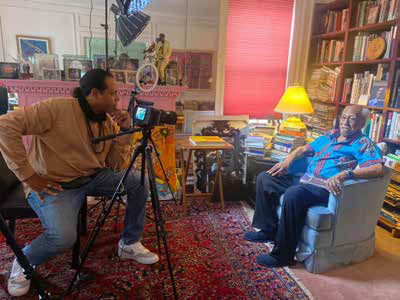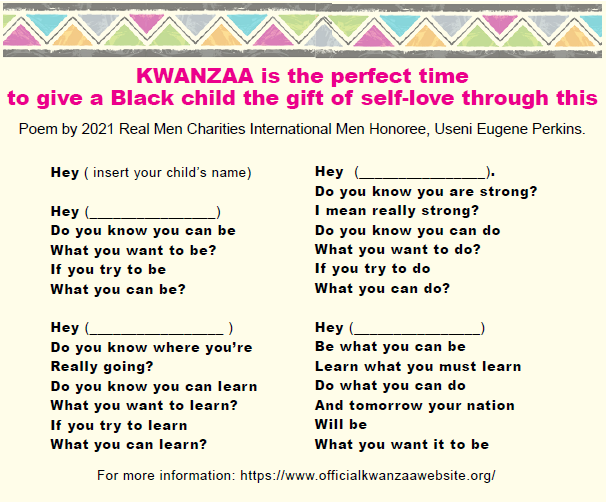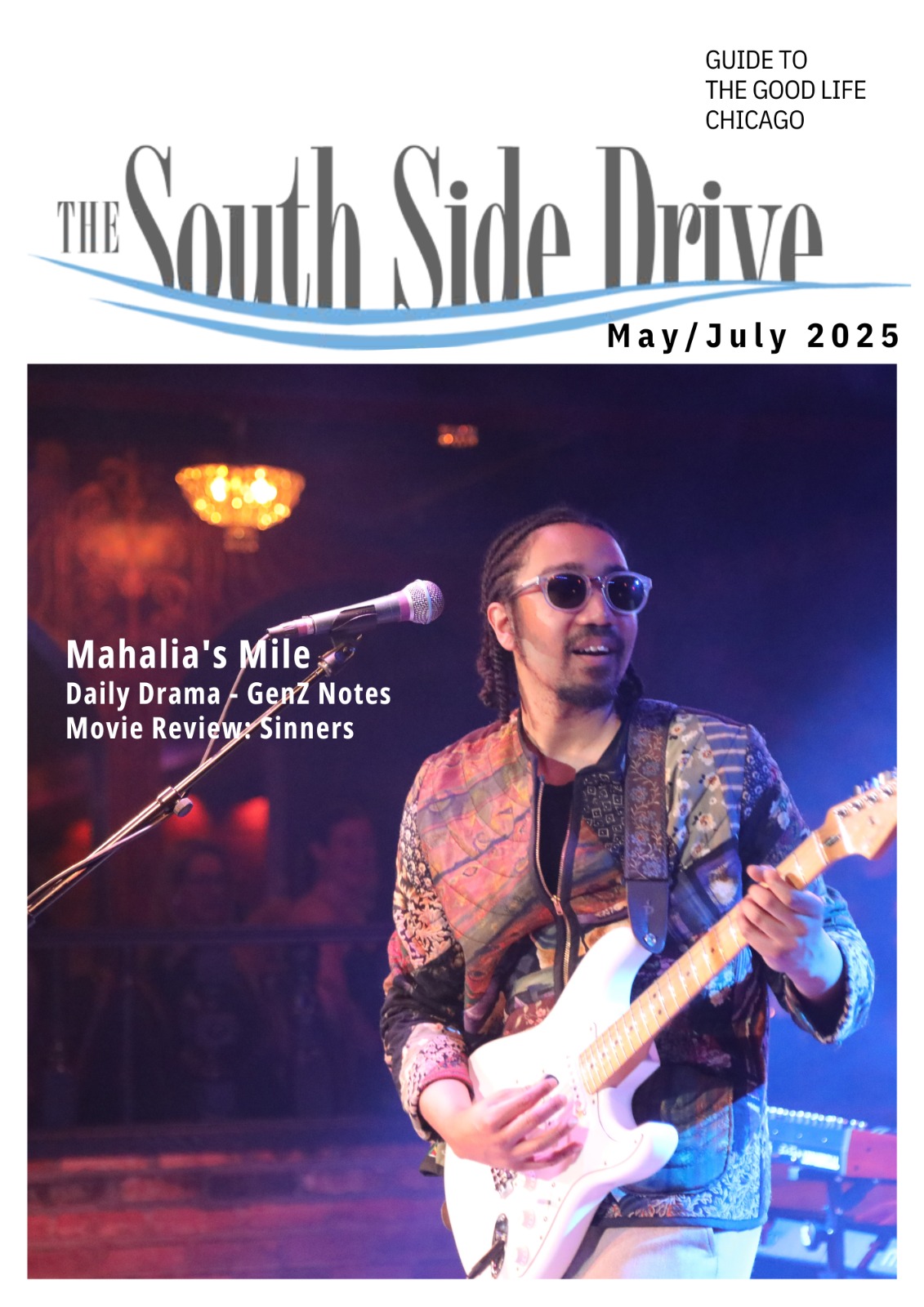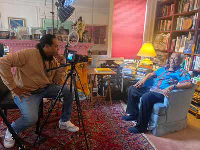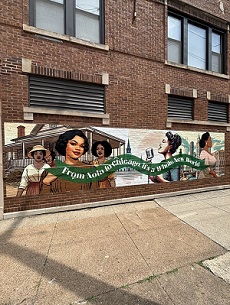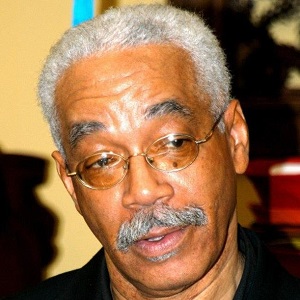
Last month, a young man came to Chicago from California to shoot a documentary on the late Mayor Harold Washington. This young man, Craig Williams, hails from Chicago where he began his career as a producer when he was a young protégé at Soft Sheen Products. He knew the Harold Washington mayoral story began at Soft Sheen with the “Come Alive NOVEMBER/DECEMBER 5” voter registration campaign. Yet, no one ever publicized that part of the story. Therefore, Craig was determined to shoot a comprehensive documentary featuring all or most of the players contributing to Mayor Washington’s success – including the “unusual suspects.”
One of the people who had not been featured enough and who Craig, like many of us, looked up to was Timuel Black – an historical civil rights activist and professor. Tim knew Harold Washington from his early years when they were classmates at Roosevelt University – one of the few colleges open to Blacks at that time.
While most of the interviews were running about an hour – this one lasted about three times longer. That was no surprise to those of us who knew Timuel Black, knew of him or had ever heard him speak. Tim Black was full of knowledge about not only the Harold Washington Mayoral election, but he was well versed on every election that preceded Washington and every subsequent election. He was also full of knowledge about his hometown, Chicago. Tim Black was America’s own living griot, with a determination to get his crucial and valuable information out.
Tim not only knew Chicago history; he lived Chicago history. He once told the Chicago Sun Times that “My mother and father were children of former slaves, my great-grandparents products of the Emancipation Proclamation. I came up in a time when African American men and women were being lynched. The racial segregation was so terrible people were fleeing to escape the terrorism.”
His passion for telling Chicago’s history was not out of a need to show off his knowledge, but to share his knowledge with younger generations. Throughout the interview with Craig Williams, which took place on Thursday, September 23, 2021, Professor Black’s words continually began and ended with “tell the young people this.”
Timuel was a prolific author and has written books about Chicago’s history.His memoir,Sacred Ground: The Chicago Streets of Timuel Black, was released on January 15, 2019.Still in the fashion of a modern-day griot, he preferred to share his wisdom orally. At 102 years old, he still knew every detail of Chicago’s history. At 102, his memory was sharper than many people half his age.
Two years ago, at an event hosted by the Mayor Harold Washington Legacy Committee, Tim Black participated on a panel and was given 10 minutes for remarks. That may seem like a generous amount of time for some, but for Professor Black, it was not nearly enough time to present his message. So, for 30 more minutes, the committee members and emcee were giving hand signals, tapping him on the shoulder, sometimes subtly, and then not so subtly, trying to get him to give up the mic. Timuel, however, continued on until he said everything he wanted to say. At one hundred years old, you can do that.
As prolific as he was in speech, he was just as profuse with his writings. Besides Sacred Ground, he also wrote two seminal volumes of oral histories on the Hansberry vs. Lee case of 1940. In this case, Carl Hansberry, father of Lorraine Hansberry, fought the restrictive covenants, taking it all the way to the Supreme Court, and breaking the barriers of segregation in the Woodlawn Community of Chicago.
Timuel also compiled conversations with Great Migration descendants, among them the father of jazz musician Herbie Hancock and the mother of former Obama White House adviser, Valerie Jarrett. The 2007, Bridges of Memory: Chicago’s Second Generation of Black Migration, centered on those who were teenagers during the Civil Rights Movement.
Whether speaking it or writing it, Professor Black had quite a lot to tell the world. He flew to Montgomery, Alabama, in 1955 for the specific goal of meeting Dr. Martin Luther King Jr., because as Tim said, “He articulated the feelings that I had.” Subsequently, in 1956, he was among a group from Hyde Park’s First Unitarian Church to invite his friend, Dr. Martin Luther King Jr., for King’s first major Chicago speech at the University of Chicago’s Rockefeller Memorial Chapel. He worked closely with King as the

Zenobia Johnson-Black and Timuel Black
Civil Rights Movement heated up, becoming a trusted adviser.
After the 2000 presidential election, Professor Black became lead plaintiff in the ACLU’s “Black vs. McGuffage” lawsuit, which accused Illinois’ voting system of discriminating against minorities. That led to a uniform voting system in Illinois and a ban on punch card ballots.
Tim was also counsel to Senator Barack Obama, when the young senator ran for president in 2008. Professor Black and the former president’s friendship began when Obama was a young community organizer in the early 1980’s.
On Sunday, September 26, Craig Williams received a note from Tim’s wife, Zenobia that simply said, “You have gotten the last interview of Tim. He is now in hospice.”
Two weeks and four days later, Professor Timuel Black died peacefully in his own home, surrounded by friends and relatives.
We can never forget Tim Black’s huge contribution to this world – especially to his beloved Chicago.
